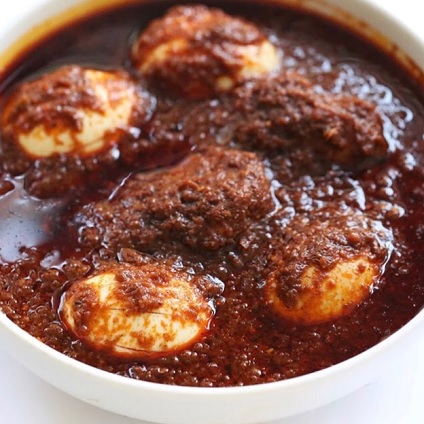
Early this week, Ethiopian Christians have concluded their long fasting season of lent and began celebrating the Easter holiday week. And likewise, Muslims are wrapping up next week the Ramadan fast to celebrate Eid al-Fitr. Regardless of their economic condition and their wallet thickness, Ethiopians celebrate their holidays with devotion as best they can. On holidays, they dress better, eat better, rejuvenate their spirit, strengthen their social bond, and try their best to share their holiday happiness with their neighbors and even strangers.
About two decades ago, Getachew and I were eligible bachelors, next-door neighbors, and working at the same factory in the middle of nowhere in a remote corner of the Tigray region. Despite being thousands of kilometers away from home, we have never felt homesick during major holidays like Easter. We were rather busy keeping up with our tight schedules of invitations for feasts starting from our landlady, Emama Abrehet. One could be alone but could never feel lonely on Ethiopian holidays unless he wants to. That is one of the miracles of Ethiopian holidays.
Emama Abrehet hears a little Amharic; and we hear a little Tigrigna. That was just enough for us to communicate. That was when I realized how similar the two languages are. But her granddaughter, Marta, who was in her late teens, speaks fluent Amharic. At our landlady’s home, on holidays like Easter, we enjoy the exquisite taste of mouth-watering Injera foods and bread followed by a special Tella [traditional beer], its recipe seems to be a secret of Tigrayan ladies. When they describe the superb quality of the tella, they say it is as clear as a chicken’s eye. But beyond its appearance, it is its taste that should have gained more praise and acclamation.
Actually, Tella was not a luxury treat we enjoyed only on holidays like Easter. It was rather part of our weekdays evening routine to sip a few glasses of Tella to cool our body off, which seared in the vapor-filled factory building under the desert-like daytime weather.
I won’t forget the courtesy of the hosts and customers of the village pubs. They usually rise to greet guests and elders who had just entered the pub and could even give up their comfortable seats for them. They would crack a small talk to encourage the newcomers to join the ‘Tella talk’. When I reminisce about the civility and the compassion of the people in Tigray I encountered in those days, I often wonder how such an uncivilized and cruel group of thugs called TPLF originated from that part of the country. My quest for an answer has brought me to one conclusion – the diabolical and racist ideology and deeds of TPLF can never represent the cultural norms and values of the Tigray people.
Though we enjoyed attending the conversations inside the pub, Getachew and I usually prefer to sit outside to enjoy the view of the star-studded sky and the faint breath of the wind. There, we spend an hour or two discussing and debating our passion.-the current affairs news. At that time hottest world news topic was the outbreak of the Iraq War [Americans led a war that decimated Iraq], and Ethiopia was in the firm grip of the TPLF dictatorship and a devastating drought that threatened the life of over 13 million citizens.
When the clock ticks 9.30 pm, it is time for Getachew and me to leave the pub and hit the road back home. Being a management pro and more time conscious, it is usually Getachew who declares the adjournment of our inn session until the next night. He would suddenly spring to his feet, glancing at his watch, and used to say this: “Let us go home and fall like the Derg, and We will rise like Jesus Christ in the morning.”
The resurrection of Jesus mentioned in Getachew’s words of simile is the greatest miracle of the Christian world. It is the cause for one of the biggest holidays in the Christian calendar-Easter.-a holiday for Christians that celebrate the defeat of death and the hope of salvation.
Close to three-quarters of Ethiopian Christians celebrate Easter week in accordance with the orthodox ‘tradition’. When such major holidays like Meskel, Genna [Christmas], and Timket[Epiphany], emphasize dressing to kill, songs and dances, outdoor processions, and bonfires, Easter is a relatively quiet holiday marked by a lot of fasting, praying and of course preparation of specials foods from Gulban [boiled mixture of wheat and beans] to Dorowot. When Western Christians celebrate Easter with chocolate eggs, Ethiopians celebrate it with chicken.
Regardless of their economic status, almost every Ethiopian Christian household would get at least a chicken, an essential ingredient of the delicacy, Doro wot-the food served as the most important meal of the holiday- the late-night dinner near the dawn of the holiday.
In Orthodox Ethiopia, Easter is not a festive event of just a single day. It involves spiritual, social, and logistical undertakings that could span as long as two weeks, from Hosanna Day [the week before Easter] up to Dagma Tensae[The second Easter], a week after Easter day].
It is the time of the year when family members and neighbors circle a big dinner plate, gebeta, to share the midnight feast with the uniquely Ethiopian cuisine, Doro Wot, breaking the marathon fasting season of lent [Hudade] of about 2 months. It is their religious and social duty for people to invite the lonely, the stranger, the destitute, and the priests and monks in churches and monasteries who are unable to prepare the holiday feast for themselves.
Late night dinner signals the beginning of the Easter holiday and is proceeded by an evening mass service in churches that went through night until around 3:00 am, the time around which Jesus was believed to have risen from the dead.[of course, the bible does not specifically mention the time of the night Jesus resurrected.]
It is heartwarming to see the age-old culture of sharing food during the holiday has continued to this day despite the growing trend of individualism in our society. It is now common to see self-motivated youth in several towns engage themselves in collecting food and goods donations to give away to the economically disadvantaged section of the society like street dwellers, the elderly who have no caretaker, and the mentally challenged.
During Easter week, in-laws exchange visits to each other’s homes carrying homemade bread loaves, liquor bottles, and other presents, cementing the family extension with gestures of love and care, setting aside the family politics at least for the time being. Elders use the peaceful atmosphere of holidays to bring adversaries together to resolve their disputes.
We are in a season of the year where the laities of the two most popular religions remember their creator more often than usual and try their best to do their religious duties. Last Thursday, I saw a young man, dressed in white from his jellabiya up to his skull cap [taqiyah], standing in front of a dozen street children, who were enthusiastically devouring food from a takeaway plastic bowl each holding in their hands. The children were intermittently throwing words of gratitude at the young man. And on the morning of Good Friday, I saw an old woman and a young man distributing used clothes to an army of beggars, young and old, lining up at a church’s main gate. Feeling excitement and a big smile is visible on the beggars’ faces.-a contented smile on the faces of the poorest of the poor thrown into a dustbin of society-that is another miracle of an Ethiopian holiday.
BY SOLOMON WASSIHUN
The Ethiopian Herald 1 May 2022




